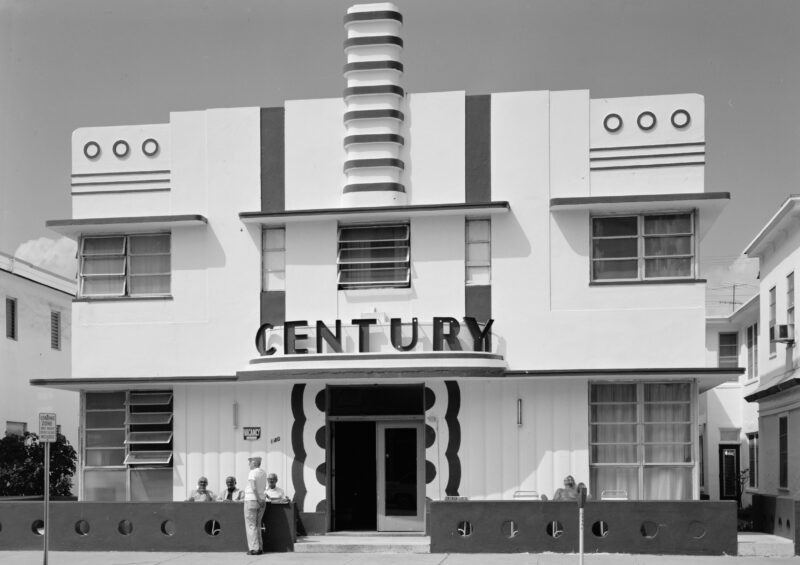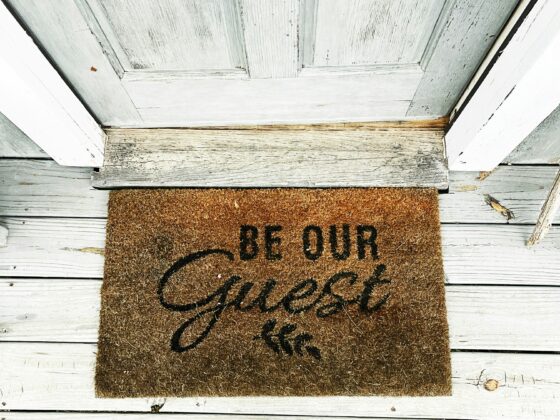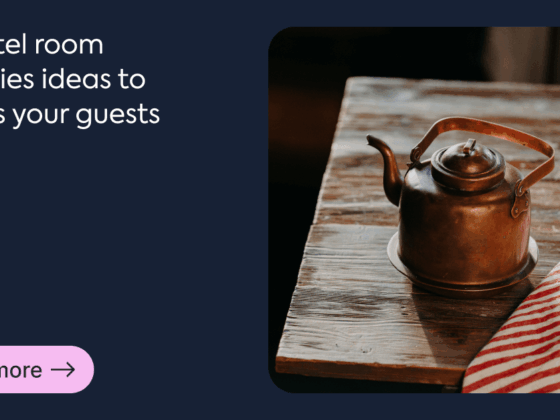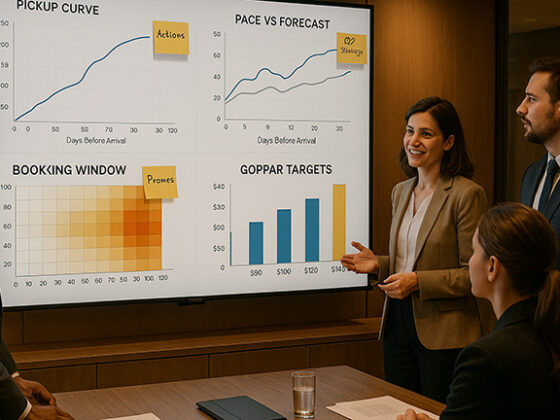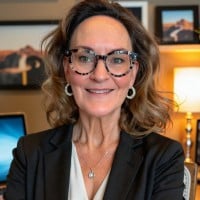
When Dana Kelly, Owner of Penrose Hospitality Solutions, found herself wanting to pivot her career from working in behavioral health to a role in the hospitality industry, she didn’t know where to start. Setting out in an industry in which she had few connections or business acumen, Dana sought out tools to help ease the transition, leading her to NEWH, Inc.’s Martha’s Mentors program. It’s here that she was paired with Jeanne Varney, Senior Lecturer at the Peter and Stephanie Nolan School of Hotel Administration at Cornell University and Past International President of NEWH, Inc.
Through this experience, both women came to realize just how transformative mentorship can be, especially in an industry as relationship and knowledge-heavy as hospitality. Below, Dana and Jeanne reflect on their mentor-mentee relationship, discussing how others can enrich their career by forming similar connections:
What would be your advice for those seeking mentorship? How can they find the right program or pairing that fits their needs?
Dana Kelly: Stay open. Open to new information, to diverse teaching and learning styles, and to the idea that engaging in dialogue with someone who brings years of industry experience might shift your perspective in meaningful ways. After all, you have nothing to lose and potentially so much to gain.
Jeanne Varney: First, think about what you are looking to get out of a mentorship relationship. This will help you identify opportunities that will best suit your needs and goals. Many companies offer mentorship programs that are more focused on specific career growth within that particular company, while professional organizations like NEWH offer mentorship programs that are more industry-focused. These programs usually have mentors with varied backgrounds who can offer a broader array of advice. You can also informally set up coffee chats or information sessions with professionals you admire or aspire to be someday. These conversations can lead to ongoing informal connections or develop into more formal mentorship relationships. Keep in mind that not all successful professionals are great mentors, so keep an open mind when it comes to who you’re paired with. You want to connect with someone who has the sincere desire to mentor and is willing to commit time to the relationship.
Why do you think mentorship is so important in the hospitality industry in particular?
DK: The landscape of the industry seems to shift and pivot right before our eyes, often in real time. With changes happening so rapidly, I initially lacked the perspective to fully grasp how these shifts could be both impactful and fleeting. Jeanne played a pivotal role in helping me understand how to navigate multiple transitions at once, all while maintaining and nurturing the relationships essential to continued growth and success. Without her guidance, there’s a real chance I might have questioned whether I was cut out for the turbulence we’ve experienced, even in the short time I’ve been part of this industry.
JV: Hospitality is a huge industry, yet also a small family. Like many other industries, hospitality is made up of many different and complex networks that interact and intersect with each other. When anyone is new to the profession, they don’t know what they don’t know. Mentors can provide valuable insights, personal connections and broader perspectives. Suggestions for things like which newsletters to subscribe to or which events to attend can help a newer person make choices that are more relevant to their needs and goals.
How has mentorship shaped your own professional journey? What do you think others could learn from your experience?
DK: As I mentioned above, I credit Jeanne and her compassionate yet firmly supportive approach for helping me realize that I deserve to take up space in this industry. She consistently reminded me that I was not alone and that I was surrounded by support and resources, including the incredible community within the NEWH family. That guidance made a profound difference. I hope that my own journey through a complete career sea change serves as proof that when you’re willing to engage with the communities offering their support, failure becomes a far less likely outcome.
What is the best advice you’ve ever received from a mentor?
DK: ‘It’s going to be okay.’ Literally those five words. Full disclosure, I’m a natural-born worrier. In my previous career, so much hinged on the ability to make deeply informed, highly precise decisions under intense pressure and during real human crises. That kind of environment conditions you to feel an almost constant, unexplainable pressure to always have the right answer and to act immediately.
Jeanne helped me step outside of that crisis-response mindset. She showed me that I had more knowledge than I gave myself credit for and that I had access to far more resources than I realized, often right at my fingertips. I’ve learned to pause, take a deep breath (sometimes literal, sometimes figurative), and recognize that not everything that looks like a crisis truly is. With a thoughtful pause, what once felt overwhelming can often be managed with clarity and confidence.
JV: Ask questions! So often, we feel that we should know all of the answers. We may feel insecure about not knowing something, so we refrain from asking for information or help. Trying to figure things out yourself can be a huge waste of time, when just asking a question can get you the answer you need quickly. I still need to remind myself of this advice.
How can mentees make the most out of a mentorship experience?
DK: Ask all the questions, including the ones you’re excited to ask and the ones you’ve hesitated to voice because you fear they’ll make you seem uneducated or uninformed in front of a mentor. Before I had that kind of support, I often turned to peers or colleagues with my questions, and while their answers were generally well-intentioned, they sometimes included information I didn’t fully understand. That left me feeling even more unsure and reluctant to ask follow-up questions, creating a cycle that only deepened my self-consciousness.
Mentorship changed that. It gave me a safe, judgment-free space to ask every question, especially the ones I might have held back in other settings. That freedom to seek clarity without fear of embarrassment was a game-changer in both my confidence and my growth.
JV: Make the meeting times a priority. Set goals for the experience and share them with your mentor. That way, they can work to provide you with the best guidance possible to meet your needs. Also, it is important to come to your meetings prepared with an agenda and a set of questions for the sessions. Remember that these sessions are for you, and you want to be sure you maximize the knowledge transfer during each meeting with your mentor.
Dana is an absolute pro with this. She is always prepared with a list of questions and scenarios to discuss. What I also enjoy is that she will provide me with feedback or information related to past discussions. This helps to guide future discussions and advice.
How does someone know whether they’re ready to be a mentor themselves?
JV: I think that everyone has the ability to be a mentor to someone, in some area, at any given time. It’s a matter of desire.
If someone is interested in assuming the role of mentor, the most important thing to consider is being willing to 100% commit to the regular meeting times and protect those appointments. Dana and I almost never hang up our Zoom call without another mutually convenient meeting time for our next Zoom. These regular meetings keep our conversations fresh in our minds and help us more productively build on Dana’s progress in whatever she is working on.
No one can ever give perfect advice, so don’t worry about always being exactly right with your guidance. Having the desire to help guide someone along their path (and maybe avoid some of your own rookie mistakes!) is what really counts. Someone may be waiting for you right now so if you feel the call, don’t hesitate to volunteer!
How do you think mentorship will shape the future of the hospitality industry?
DK: In many careers, support is essential to meaningful growth. Without it, we can miss out on the valuable perspective that outside experience brings. Engaging in mentorship opens us up to those perspectives, and it invites us to explore how someone else’s journey can help shape and inform our own. I truly believe that the more informed and educated individuals are about the industry as a whole, the more effective and empathetic they’ll be as leaders.
JV: I think that the hospitality industry has a long legacy of successful mentorship of its talent. Whether it is the line-level employee or the corporate executive, leaders recognize the value of mentorship. Many times, mentorship programs accelerate the mentees’ professional development because they are tailored to the individual. The more programs available to new-to-the-industry or growth-oriented professionals, the better it will be for the hospitality industry.
Formal mentoring programs like NEWH’s Martha’s Mentors take the concept even further by vetting both mentors and mentees through their application process. Once accepted, they then provide training, a set of expectations, and ongoing support to both the mentors and mentees. This type of program significantly increases the likelihood of a successful relationship match and accelerates the growth of the mentees.
What qualities do you think make someone an exceptional mentor—or mentee?
DK: For a mentor, first and foremost, compassion, as it allows the mentee the needed space to engage in an open and meaningful way. Second to that would be time; it’s so precious in this industry. We are all subject to so many deadlines, so much travel, and, as previously mentioned, the constantly shifting landscape, that the commitment of time will inevitably bring value to the relationship.
JV: For the mentor, the ability to commit time to meet, good listening skills, and the desire to serve whomever you are working with. For the mentee, the ability to commit time to meet, knowing (or having some good idea of) what they want to get out of the relationship, patience with themselves (because sometimes learning and growing can be a frustrating process), and a desire and openness to learn
How can mentorship relationships evolve over time, and when is it okay for them to take a new shape or naturally conclude?
DK: I think this question has to be based on each relationship. That being said, the willingness to speak freely about what each person needs and can commit to is extremely important.
JV: Although I get so much out of my relationship with Dana myself, it is really about her. Is Dana getting what she needs out of our time together? How can I evolve with her to continue to help her grow and reach her goals? Our relationship has definitely evolved into a friendship as well, which I greatly enjoy. As for concluding the relationship, sometimes people shift their focus, or other obligations enter their lives. That’s OK too. Hopefully, each party will take with them fond memories of their time together, along with a sense of satisfaction that the relationship was enjoyable and productive.
Conclusion
NEWH, Inc. is accepting applications for its third annual Martha’s Mentors Program through November 15, 2025. The transformative 10-month initiative connects emerging hospitality professionals with seasoned leaders, fostering relationships that inspire growth, guidance, and opportunity. To qualify, mentor applicants must be active NEWH members and have a minimum of 10 years of experience in their field, while mentee applicants must have fewer than five years of experience in their field. For more information, please visit https://newh.org/resources/marthas-mentors/.

